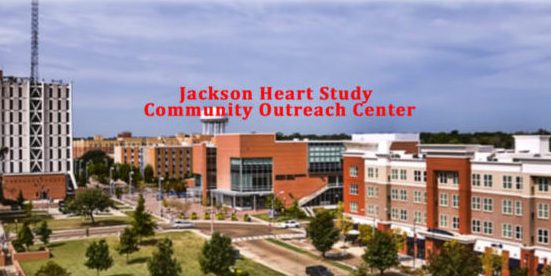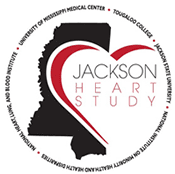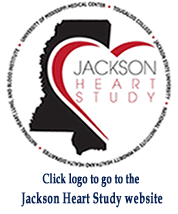Jackson Heart Study Community Outreach Center

Training Activities at the Jackson Heart Study Community Outreach Center
One of the aims of the Jackson Heart Study (JHS) is to perform community health education activities that would facilitate the dissemination of health promotion and disease prevention and intervention messages among residents in the tri-county Jackson metropolitan area. A very important tool at the disposal of the Community Outreach Center (CORC) for facilitating the accomplishment of this aim is the engagement of our communities in training activities that have the potential to enhance our ability to expand the health promotion and prevention messages to a wider audience. The JHS CORC welcomes that opportunity as a strategic mechanism in the struggle to eliminate health disparities. Building capacity in our communities through training activities is an effective way of helping them to take responsibility for improving the quality of their lives, while, at the same time, making personal commitments and contributions to maintaining good health status for themselves, their families, and their fellow community members.
CORC’s staff, led by Marty Fortenberry and Darcel Odom, have been leaders in the efforts to provide avenues for community members through their continuous support of the Community Health Advisory Network (CHAN). These networks have been organized among community members in all of the three counties of the JHS area, Hinds, Madison, and Rankin Counties, and a primary focus of the Community Health Advisors (CHAs) is to participate in training sessions that would increase their competence to lead the efforts to eliminate or reduce health disparities in their respective neighborhoods as well as statewide. The CHAs operate on-going training sessions as a way to sustain the impact of the messages and training to which they have been exposed through their interaction with the JHS CORC. In addition to direct interaction with community groups, CORC staff also provides in-house training at the JHS centers for students. Undergraduate students, graduate students, as well as high school students are afforded training opportunities at the JHS locations to boost their skills in biomedical and public health disciplines and explore careers and opportunities in the biomedical field as they explore possible rewarding professions for the future.
Jackson Heart Study Community Outreach Center


